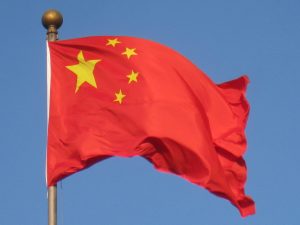
Tesla ramps up sourcing of components from India, could reach up to $1.9Bn this year
India is quickly poising to be a greater area of interest for EV maker Tesla. And if Tesla’s talks to set up its auto parts and electronics chain in the country is not indicative of this, the automaker is now set to significantly ramp up its component sourcing from India, with plans to nearly double it to $1.9 billion this year, according to India’s Commerce Minister Piyush Goyal. While these components will cater to India’s burgeoning domestic demand for EVs, it could result in India emerging as a key player in the global EV component supply chain. The export potential of Indian-made components could further enhance the country’s status in the world of electric vehicles.
Last year, Tesla procured $1 billion worth of automobile components from India. For 2023, Tesla has set ambitious targets, aiming to source between $1.7-1.9 billion worth of components from the country. Minister Piyush Goyal shared this information during an automotive event in New Delhi, adding, “We’ll start enjoying the fruits of new technologies, innovation and R&D coming into India. The auto component industry will not only then produce for a larger India demand, but with the same [components] models being sold in the rest of the world, we will also start exporting those components.”
“In many cases, particularly, for example, in taxis, public transport in buses, we already see electric vehicles having become a very compulsive investment case,” Goyal said at the automotive event, adding, “Investments come to India because of its market size,” he said adding bringing investments into India does not mean that “we would have to continue to import goods into India that are available locally at a competitive price and of very high quality. .
India’s aspirations in the electric vehicle market have grown substantially, with the government targeting 30% of all four-wheeled vehicles sold to be electric by 2030. Currently, EVs constitute only around 2% of all four-wheeled vehicles sold in India. Leading Indian automakers like Tata Motors, along with Chinese companies BYD and MG Motor (owned by SAIC), are at the forefront of EV sales. India’s traditional automakers, such as Maruti Suzuki and Mahindra, as well as global giants like Hyundai and Honda, have yet to make significant inroads into the country’s EV market, which resulted in EVs accounting for sold between January-July 2023.
And in pursuit of its EV goals and objectives, the Centre is actively working on policies to attract EV manufacturers and stimulate investment in the sector. Reuters recently reported that India is developing an EV policy aimed at reducing import taxes for automakers committing to local manufacturing. The government’s objective is to boost domestic EV production and attract more investment. Tesla’s involvement in this will be crucial to realizing the goals and objectives – you may remember that in June, Tesla’s visionary CEO, Elon Musk, held a crucial meeting with Indian Prime Minister Narendra Modi, where he expressed a strong interest in investing in India and establishing a local presence “as soon as humanly possible.” However, specific details, including timelines and investment plans, have yet to materialize.


